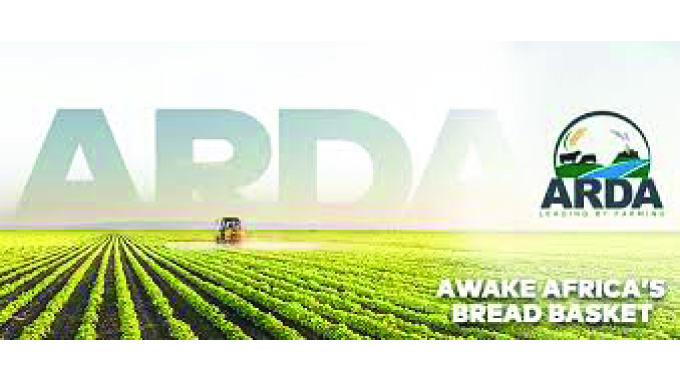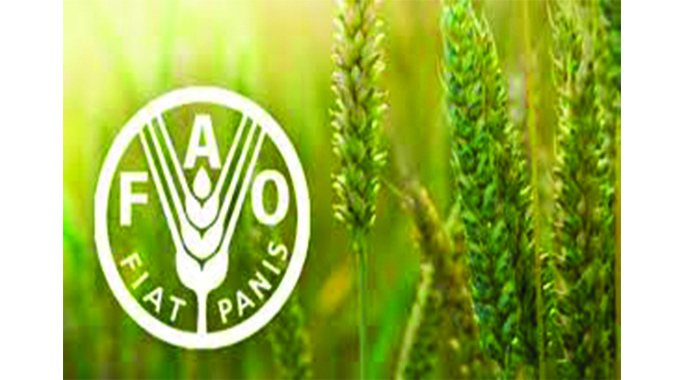The Chronicle

Midlands Bureau Chief
GOVERNMENT has revitalised an irrigation scheme in the Midlands, ushering in a new era in Gokwe South District with the local community making history by becoming the first growers of commercial wheat in this part of the country.
The 134-hectare Mutange Irrigation Scheme, which has been lying idle for years, was this year revived by Government, through the Agricultural and Rural Development Authority (Arda), putting a record 65 hectares under winter wheat this year.
Farmers are set to harvest 325 tonnes of wheat with each of the 243 households realising dividends of US$600.
 Money – Image taken from Pixabay
Money – Image taken from PixabayPlans are already underway to put the entire 134 hectares under maize this summer season and the farmers are anticipating to harvest 700 tonnes of grain.
The farming project has proved to be a game changer in the province and is a testimony of the Second Republic’s commitment to its rural industrialisation agenda.
Through rural industrialisation, Government hopes to stem rural to urban migration, which slurps growth from the African countryside, transferring it to towns and cities. Rural industrialisation, which hinges on the Second Republic’s devolution policy, involves nurturing agro-processing start-up enterprises in rural areas through financial and technological support via venture capital funding and Government agencies.
Arda came on board and helped in establishing the irrigation scheme, which officially started operating during the winter wheat cropping season. Established in 2017, the irrigation scheme has been lying idle after a 500kv transformer was struck by lightning soon after installation.
The irrigation scheme draws water from the Mutange Dam, which was completed in 2016 and state-of-the-art centre pivots were installed at the irrigation scheme long back, but it remained a white elephant because there is no electricity.
The chairperson of the irrigation scheme Mr Jacob Tadekufa commended the Second Republic for giving the project a new lease of life.
He said the irrigation scheme is now a source of their livelihood for the local community.
“We are grateful to the Government for this fruitful partnership. The winter wheat is now ready for harvesting and we are just waiting for the combine harvesters and expect to start harvesting this weekend,” he said.
Mr Tadekufa said farmers at the revitilised Mutange Irrigation Scheme made history by becoming the first growers of wheat at commercial level in Gokwe South District.
“We thank President Mnangagwa and the Government for such an initiative and we also appreciate the land that was given to us as it is now a source of livelihood. As beneficiaries, we have been empowered and jobs have been created for the local community,” he said.
 Government intends to increase the area under irrigation, through the Accelerated Irrigation Programme, from 175 000 hectares to 250 000ha
Government intends to increase the area under irrigation, through the Accelerated Irrigation Programme, from 175 000 hectares to 250 000ha“Effectively, this means there is no longer a need to go to cities in search of greener pastures because our community is now benefiting from the farming project.”
Arda chief executive officer, Mr Tinotenda Mhiko said their partnership with the community in Mutange is part of the Vision 2030 accelerator model programme launched by President Mnangagwa last year at Bubi-Lupane Irrigation Scheme in Matabeleland North.
“This is another huge milestone as we roll out the Vision 2030 accelerator model. We are expecting a bumper harvest as pointed out in our yield prediction that we carried out,” he said.
“We want to ensure that there is transformation from subsistence farming to surplus-oriented farming as we move towards self-sufficiency in line with Vision 2030.”
The programme is meant to stimulate rural industrialisation through agricultural development in line with Vision 2030, which is anchored on driving the country’s economy into upper middle-income status. Under this model, Government is stimulating industrialisation of rural communities through engendering value addition and beneficiation. Each district across the country will have 200 hectares under irrigation with the beneficiaries being locals.
Mr Mhiko said the irrigation scheme was wholly funded by the Government under the accelerated irrigation revitalisation programme aimed at promoting sustainable rural development and growth.
“The investment by the Government was rolled out through the Ministry of Lands, Agriculture, Fisheries, Water and Rural Development. Arda is the scheme business manager, which ensures that the beneficiary farmers run their cropping programme sustainably on the back of a sustainable and profitable business case,” he said.
The irrigation scheme has a resident Arda business manager who assists the farmers to ensure that they manage the project profitably.
 The Agricultural Rural Development Authority (Arda)
The Agricultural Rural Development Authority (Arda)“The scheme is run at the back of the revolutionary Vision 2030 Accelerator model which makes rural farmers active economic participants and get the maximum possible dividends from their land and assets,” he said.
In terms of production and productivity, Mr Mhiko said the scheme has 65 ha under wheat and they are estimating to harvest 325 tonnes of wheat.
“Farmers should expect a dividend payment of US$600 for each household across the 234 beneficiaries of the scheme. Our plan is to ensure that we put the entire 134 hectares under maize this summer season,” he said.
 Government is targeting to increase the hectarage under wheat
Government is targeting to increase the hectarage under wheat Mr Mhiko said the farmers at the scheme practice a block cropping system which embraces entrenched economies of scale and maximise profits for the farmers.
The model, he said, has moved the household beneficiaries from subsistence farming to surplus oriented production.
“The model has enabled the beneficiaries to achieve food self -sufficiency at household level as well as transforming them to active economic participants instead of being mere spectators in farming. By so doing, they are contributing to the provincial Gross Domestic Product in line with the Government’s Devolution Agenda and Vision 2030,” said Mr Mhiko.
 Food and Agriculture Organisation (FAO)
Food and Agriculture Organisation (FAO)The Second Republic has made food security a top priority and is working towards a US$8,2 billion agriculture industry economy by 2023, underpinned by the country’s National Development Strategy 1 (NDS1) — the driver towards Vision 2030 to make Zimbabwe an upper middle-class economy.
The Midlands provincial irrigation engineer, Engineer Shingirirai Zano said there is need for the scheme to open up more land to ensure the full utilisation of the Mutange dam.
“This irrigation scheme is 134 hectares in size yet the supply dam has capacity to irrigate 200 hectares of land. We, therefore, request for more land from the community leadership so that we expand the project,” he said.
Article Source: The Chronicle
